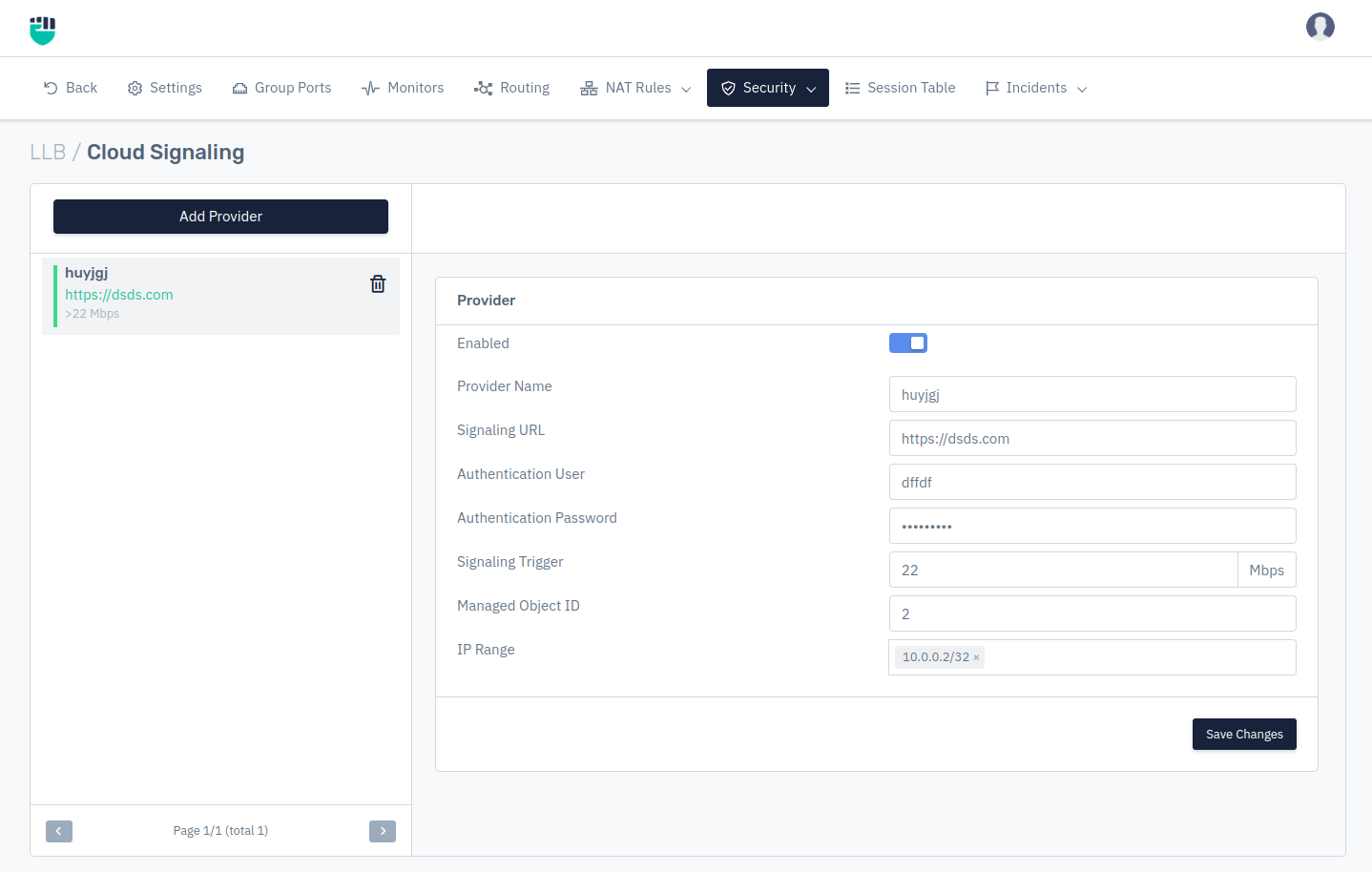Cloud Signaling
A faster, automated approach to comprehensive Link Load Balancing need comprehensive, integrated protection from the data center edge to the service provider cloud. For example, when data center operators discover they are under a service-disrupting DDoS attack, they should be able to quickly mitigate the attack in the cloud by triggering a signal to upstream infrastructure of their provider’s network.

How to Use
- Go to Apps > LLB > Security > Cloud Signaling
- Add Provider and configure the details as per the requirement.
- Click on Save Changes
| Settings | Accepted Values | Default |
|---|---|---|
| Enabled | Boolean | False |
| Provider Name | String | Empty |
| Signalling URL | String | Empty |
| Authentication User | String | Empty |
| Authentication Password | String | Empty |
| Signalling Trigger | Integer | 0 |
| Managed Object IDs | Integer | Empty |
| IP Range | Integer | Empty |
Description
Enabled
Enable to allow the signaling to operate.
Accepted values: Enabled / Disabled
Default: Blank
Provider Name
Specify the name of the upstream provider.
Accepted values: String
Default: Blank
Signaling URL
Specify API endpoint of upstream provider for sending cloud signal
Accepted values: URL
Default: Blank
Authentication User
Specify password user credentials for interactive with upstream cloud signaling API
Accepted values: String
Default: Blank
Authentication password
Specify password credentials for interactive with upstream cloud signaling API
Accepted values: String
Default: Blank
Signaling Trigger
Specify the bandwidth threshold (in Mbps) beyond with a cloud signal that will be sent to the upstream provider
Accepted values: Integer
Default: Blank
Managed Object ID
Specify unique customer ID provided by the upstream providers for further authentication
Accepted values: Integer
Default: Blank
IP Range
Users can specify the IP range
Accepted values: IP
Default: Blank